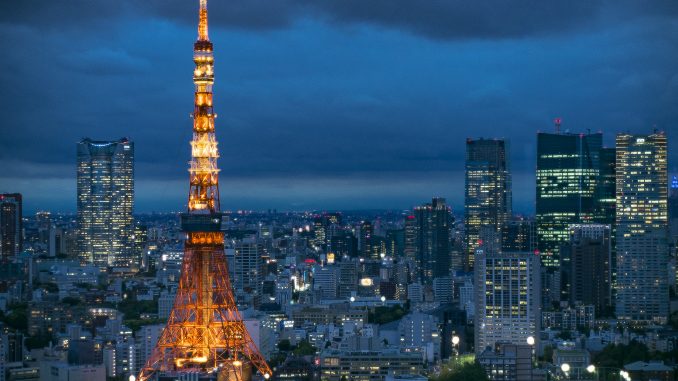
Three months before the games begin at the Tokyo 2020 Olympics and Paralympics, Japan’s Olympic Committee (JOC) released an updated “science and experience-based” playbook, offering a more in-depth insight into what this year’s unusual 17-day event will look like. The blow-by-blow breakdown puts paid to the speculations of skeptics suggesting that the committee was on the cusp of calling the whole thing off.
The Japanese will have to await the final verdict on whether or not they can attend the Games in person, but the JOC’s President Seiko Hashimoto has conceded that to have stands filled with spectators will probably be “very difficult” this year. This comment comes at a time when the clock is ticking on the Opening Ceremony of this quadrennial international bonanza scheduled from July 23 through August 8, after last year’s postponement. But the organising Committee is evidently working to fulfil the role of the “safe hands” it promised to be when the Olympic bid when to Japan in 2013.
The three key words in the revised playbook are testing, tracing, isolating. The new rules include such stipulations as two negative tests for the athletes before leaving for Tokyo, followed by another negative test upon arrival. At this point, the participant – who must have a smartphone – will be registered with a daily health reporting app, as well as a Covid-19 contact-tracing app. From then on, sportsmen will be tested daily. The teams will furthermore live in an isolation bubble within the Olympic village, permitted to travel only between their accommodation and the training and events facilities, using private transport. Even television interviews are covered by the document which states that a face-to-face with athletes can last up to a maximum of 90 seconds and interviewers will have to sport a mask at all times.
This week’s playbook publication is not the first time the JOC has released a plan of action tailored to the quickly evolving global health situation. Indeed, these new precautions reflect Japan’s public-health-conscious preparations of the past twelve months. Even the torch relay has been subject to strict rules after it began on March 25 in Japan’s tsunami and nuclear disaster-hit Fukushima. The torch-lighting ceremony was closed to the public and ever since, the routes of the relay have been announced with only 30 minutes notice. Even then, only the local residents are permitted to attend and may not cheer in public.
The JOC are set to release a third set of regulations come June, which buys the JOC some time to make an informed judgment about the possibility for the physical presence of domestic Japanese spectators. The final decision will be predicated on the success of the country’s vaccination campaign by that point. But even if the Japanese are constrained to shout ‘Banzai!’ for the national team from the safety of their homes there’s no reason to be disheartened, particularly since the event is set to be the most technologically advanced Olympiad to date. In fact, the entire lead up to the Games has been characterized by a sense of resilience in the face of the adversity caused by this year’s black swan event. Tokyo’s governor Yuriko Koike, for example, has compared the upcoming event to the 1920 Antwerp Games which restored hope after “two major formidable events in which millions of people died: World War I and the Spanish Influenza.”
And Japan’s hosting efforts in the face of adversity have not gone unnoticed on the world stage. In February this year, G7 leaders supported Japan’s commitment to holding the Olympic and Paralympic Games in Tokyo “as a symbol of global unity in overcoming Covid-19.” The athletes too, are thrilled that the Games will go ahead as planned with one weightlifter from the Philippines declaring that “my biggest motivation is my desire to be an inspiration for the people, especially in this time of pandemic”.
Not everyone in Tokyo is so positive, however. A handful of detractors within the country have been laying hurdles for the JOC. Most recently, the Japanese Former Finance Minister and member of the government’s opposition party, Jun Azumi declared, “We’re at a point in time when we should seriously consider a cancellation or postponement”. Azumi’s comments compounded the scandalmongering of renegade senior parliamentarian Toshihiro Nikai who stated mid-April that cancellation “remains an option”, despite the protestations of his colleagues to the contrary.
Although this may have caused a media stir, the new playbook will help to quell rumours and reinstate confidence in the Games both domestically and within the international community. With a record of $3.5 billion raised in sponsorship on the ground – approximately three times more than any other Games – by Japan’s publicity heavyweight Dentsu Inc., the Japanese can breathe easily about their second ever Olympic Summer Games.
While the new rules will certainly ring the changes on this historic sporting event, the important thing is that the show will go on. Usain Bolt and Michael Phelps will be missing this year after recently retiring, but the Olympic spirit will be present in full force at Tokyo 2021.


Leave a Reply